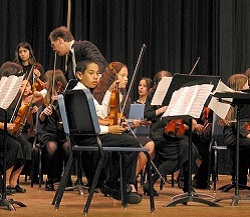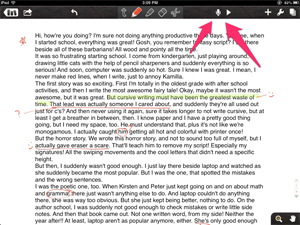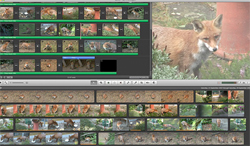It’s vital that teachers understand how edtech can help learners to develop confidence in their abilities, and recognise the progress that they have made. Arena has teamed up with Fujitsu to enhance the use of edtech to improve school efficiency and performance. By applying scanning innovation to the classroom, for example, teachers are able to put greater emphasis on progress across the curriculum, particularly in creative and technical subjects.
There are many benefits of changing the way a school manages student records, from traditional paper-based systems to electronic document management – saving space, increasing productivity, ease of audit preparation. But with the new general data protection regulation (GDPR) on the horizon, now more than ever is the time to act and review how you manage student and other files.
1. Communication: It is important to keep those involved in the loop. Not everyone needs to be involved every time, but it is important to ensure that those who need the information have something which is current and accessible. The person who raised the initial concern may not need to see actions and future communications, but they should receive closure of some kind. Perhaps a simple email or note, with ‘Thank you for raising this concern, it has been passed on to the safeguarding team and they will be in touch if any further information is required.’
A review of Earwig Academic by Umesh Patel, ICT education consultant.
This year, the Department of Education once again decreed that Interim Assessments for KS1 and KS2 had to be supported by teaching evidence: “To show that pupils have met the standard, teachers will need to have evidence that a pupil demonstrates consistent attainment of all the statements within the standard.” (Source: Interim frameworks 2017, www.gov.uk)
At this month’s Bett Show, assistive-technology experts Conversor will be launching their new Notetalker app, which will allow students and teachers to record audio, bookmarks and images in the classroom. With this resource, everything from the lesson’s discussion to guided reading and Science experiments can be easily captured in detail. Bett 2016 will be taking place from 20th - 23rd January at ExCeL London, and the Conversor team will be hosting Stand G83.

We often hear how music is not regarded as a core academic subject and as such will never be attributed as much importance as, for example, Maths and English.
Despite being a music graduate myself, and subsequently a professional musician, I also agree that core subjects should certainly be given more priority in schools.
So given that background, which is unlikely to change, I believe it’s important to find other ways to promote music in schools and ensure that everyone at least gets a chance to make music with their fellow pupils. At this point it’s important to differentiate between music as a purely academic subject (such as at A-Level) and music making in groups; for example, school choirs, orchestras or bands.

When it comes to learning, feedback is critical. So when it comes to one's writing, the principle is no different.
I have been teaching English for only six years but have struggled with this feedback process time and time again. I realise it is the most important part, and yet to do it effectively, I must commit literally hours to making sure I do it right. It's the proverbial thorn in my side.
Then when we went 1:1 with iPads in December of 2011, we discovered Notabilty. I played around with it and at first was impressed. I thought it to be a very versatile note-taking app. Then I discovered that it also has the ability to record audio along with the notes. And that's when the lightbulb exploded.

Asking pupils to create presentations to demonstrate their learning has long been a common tool for assessment. In today’s classroom learners have access to a range of tools that allow them to create effective presentations, and these can often be a great way of letting those pupils who struggle to write their ideas down on paper communicate what they know.
There are many voice recording tools around. Simple gadgets like Talking Tins, Talking Postcards or the Easi-Speak microphone are great for young children to record short segments of information. With these simple pieces of hardware, children can easily listen back to their recordings, enabling them to practice and perfect their speaking skills as well as the content of what they are saying.

A community-driven platform for showcasing the latest innovations and voices in schools
Pioneer House
North Road
Ellesmere Port
CH65 1AD
United Kingdom